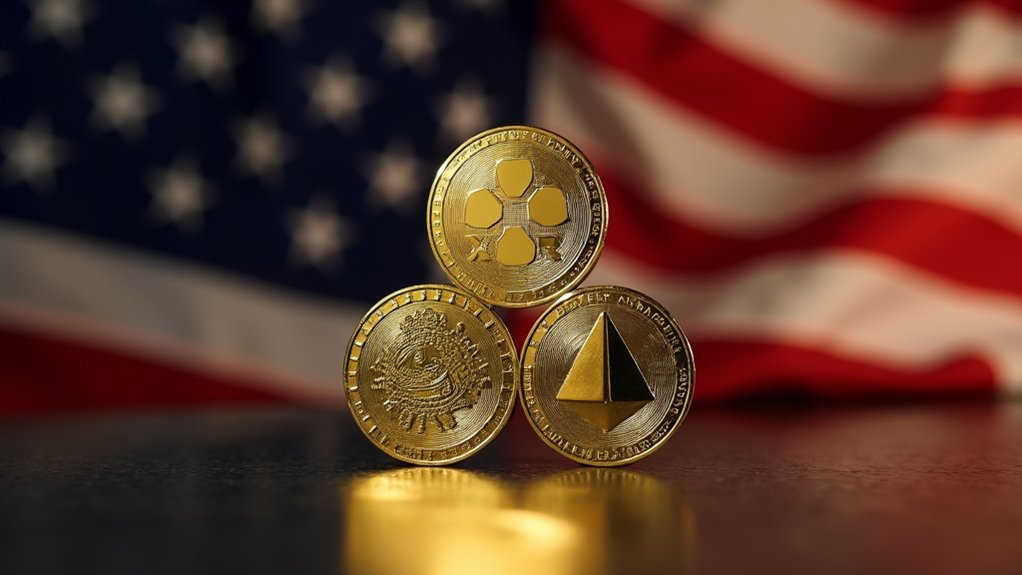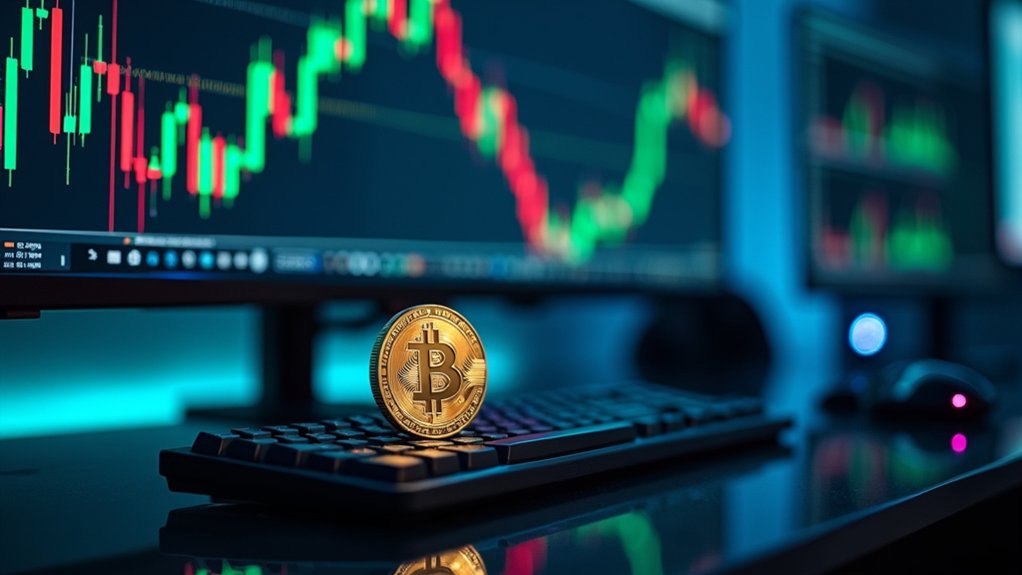Donald Trump wasted no time throwing a grenade into the cryptocurrency world. His January 23rd executive order supporting digital assets and blockchain technology while prohibiting CBDCs sent shockwaves through financial markets.
But that was just the warm-up act.
On March 2nd, Trump dropped the real bombshell via social media: XRP, Solana, and Cardano would form the initial backbone of a new “Crypto Strategic Reserve.” Bitcoin and Ethereum joined the party later. Markets went wild. A $300 billion rally pushed total crypto market cap above $3.24 trillion. Not bad for a single announcement.
Trump’s crypto bombshell ignited a $300 billion market rally with just a few keystrokes. Classic presidential market manipulation.
XRP surged toward $3.00. Solana jumped 18% to $155. Cardano shot up 22% to $0.88. Even Bitcoin, the granddaddy of crypto, climbed 10% to $94,821. Bulls were running everywhere.
The regulatory landscape shifted dramatically too. The SEC’s new Crypto Task Force, led by Commissioner Hester Peirce, signaled a move from enforcement to actual guidelines. SAB 121 got tossed in the trash, making crypto custody services easier for banks. This approach stands in stark contrast to the Biden administration’s crackdown that focused heavily on fraud concerns. Quite the turnaround from the previous administration’s approach.
Not everyone in crypto-land was thrilled, though. Some industry leaders questioned the inclusion of altcoins beyond Bitcoin. Others worried about government favoritism. Many called for clearer selection criteria. Fair enough.
Politically, Trump delivered on campaign promises. With Republicans controlling the White House, Senate, and Congress, his vision of making America the “Crypto Capital of the World” faces few obstacles. The initiative aligns with his Executive Order’s directive to evaluate the national stockpile of digital assets, including the creation of a Bitcoin reserve.
The government already holds $19 billion in cryptocurrencies. How they’ll acquire more remains unclear. Open-market purchases? Debt issuance? Selling gold reserves? Legal scholars are debating whether Congress needs to approve this strategy.
One thing’s certain: pre-announcing government investments raised eyebrows and prices simultaneously. The growing emphasis on blockchain-based smart contracts could transform how government financial services operate without traditional intermediaries. But that’s Trump for you – making waves in markets first, figuring out the details later. Classic.





